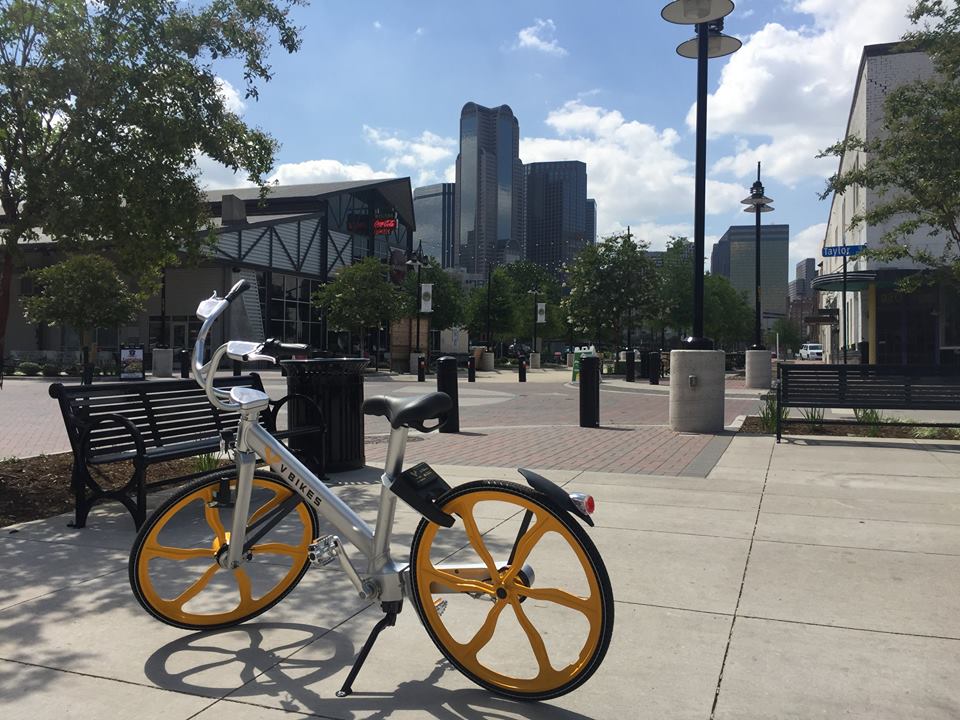It’s been just about a year since dockless rental bikes first started appearing on the streets of Dallas, and the Share Bike Apocalypse has yet to happen. The overall number of share bikes has actually declined in the last several months, down closer to 15,000 from a high that approached 20,000, according to Michael Rogers, the city’s director of transportation. If the Share Bike Wars have cooled off, then, the share bike regulations presented to the City Council this morning will help shape the peace.
The ordinance, which will go up for a vote later this month, is similar to those adopted in other cities across the country. It involves a tiered per-bike fee system, data sharing requirements, and permits that would force bike share operators to quickly pick up the bikes you still occasionally (but much less occasionally now, it should be said) see toppled on sidewalks or lobbed into creeks.
Each bike share company will need to put up a $5,000 bond, largely “in case one of the companies were to go out of business and we have to go pick up those bikes,” Rogers said. The regulations call for an initial fee of $776 from a bike share company applying to operate in the city, and a renewal fee of $388. That money, along with what basically amounts to an $18-per-bike annual fee, would help pay for three to four city staff members, including two parking enforcement staffers, to administer the regulations. If the math is correct—the city hired a consulting group to determine what the administrative costs of such a program would be—the ordinance would pay for itself. Regardless, it’s much cheaper than the millions of dollars in startup capital that would be needed for a docked rental bike program of the sort that Councilman Dwaine Caraway still prefers, although he said Wednesday that “at the end of the day, I’ll be supporting bike share.”
Rogers said the ordinance would also require companies to do regular “vehicle rebalancing” and removal. As in, the company has two hours, during business hours, to move or restage a bike that has been knocked down. If a particular bike isn’t being ridden in a particular place, it will have to be moved elsewhere after seven days. And a bike cannot sit unridden for more than two days in a residential neighborhood. The city has also already begun experimenting with striped, dedicated parking spaces for the rental bikes. While it’s not a requirement that the bikes be parked in those dedicated areas, it will go toward educating cyclists on how to not be a jerk.
Companies will have to share their ridership data, including the number of bikes in operation, the number of riders per day, and heat maps that show where rental bikes are most being used. This will help drive the city’s own transportation policy. “We believe that the data is vital when it comes to our overall success in biking and mobility options,” Rogers said.
And maybe, just maybe, the ordinance will encourage more actual investment in biking connectivity and infrastructure. “The city of Dallas has fallen far behind the times in having on-street bicycle facilities,” said Philip Kingston, who has been the biggest booster of rental bikes on the council.
There were other questions raised during the council briefing this morning. The parking enforcement staffers could address some of the issues surrounding the “hacking” of bikes, or the rentals that have had their locks broken, Rogers said. Those officers could, as well, hold the companies accountable for re-staging rental bikes. Some council members want to see higher fees. There is still plenty of room for amendments.
At least one other question will come up at City Hall this afternoon, as the council discusses whether to repeal a city ordinance that bans electric scooters from streets and sidewalks.






